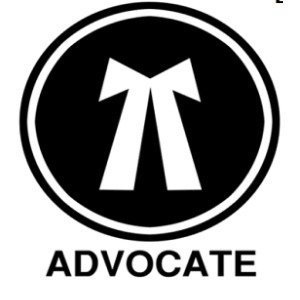Best Faith-Based Law Lawyers in Palestine
Share your needs with us, get contacted by law firms.
Free. Takes 2 min.
Or refine your search by selecting a city:
List of the best lawyers in Palestine
About Faith-Based Law in Palestine
Faith-Based Law in Palestine predominantly revolves around the personal status issues that are managed by religious courts. The legal system incorporates various religious laws due to the diverse religious demographics, including Islamic, Christian, and other minority religions. Islamic Sharia law governs the majority, particularly for Muslim Palestinians, in areas such as marriage, divorce, inheritance, and family matters. Christian denominations have their own courts for similar issues among their followers. The coexistence of these parallel legal systems can sometimes lead to complexity and necessitates careful navigation for those seeking legal counsel.
Why You May Need a Lawyer
Individuals might seek legal advice in the realm of Faith-Based Law in several situations, including but not limited to:
- Marriage and Divorce: Navigating the legal proceedings of marriage, drafting marriage contracts, and managing divorce settlements under religious law.
- Inheritance and Will: Ensuring that wills are compliant with religious laws, or handling disputes over inheritance allocations.
- Child Custody: Resolving custody disputes and visitation rights in accordance with faith-based judicial guidelines.
- Family Disputes: Mediating familial disagreements that fall under personal status laws shaped by faith-based traditions.
- Conversion and Change of Religion: Legal implications and procedures involved in changing one's religious status.
Local Laws Overview
In Palestine, the key local laws relevant to Faith-Based Law include:
- Islamic Sharia: Governs matters like marriage, divorce, and inheritance among Muslims. The jurisdiction is under Sharia courts.
- Christian Personal Status Laws: Different Christian communities follow distinct denominational laws under ecclesiastical courts for personal status issues.
- Mixed-Court Jurisdiction: In cases involving parties of different faiths, such as a mixed-religion marriage, specific courts or jurisdictions may apply.
- Family Law: Family matters such as alimony and child custody are influenced by the predominant religious laws.
- Cooperation and Reform: There's ongoing dialogue regarding the harmonization of personal status laws to address modern societal needs.
Frequently Asked Questions
What is Faith-Based Law?
Faith-Based Law refers to legal principles derived from religious doctrines that govern personal status issues such as marriage, divorce, and inheritance within a specific faith community.
Which areas of law does Sharia govern in Palestine?
Sharia largely covers personal status issues like marriage, divorce, child custody, and inheritance among Muslim Palestinians.
How are Christian personal status matters handled?
Each Christian denomination administers personal status issues through its ecclesiastical courts, according to its own religious laws.
Can a person choose between civil and religious law in personal matters?
Palestine primarily employs religious courts for personal status issues, so choices are often determined by an individual's religious affiliation.
How does inheritance work under Faith-Based Law?
Inheritance laws are dictated by religious principles, varying by faith. For Muslims, Sharia law prescribes detailed shares for family members.
What role do civic courts play in Faith-Based Law?
Civic courts generally do not intervene in personal status matters unless they overlap with civil law areas, like child protection.
How are mixed-faith family disputes resolved?
These disputes require special handling, often involving both religious and sometimes civil court inputs depending on the nature of the case.
Is it possible to appeal decisions made by religious courts?
Appeals are possible within the hierarchical structure of the respective religious courts, subject to their legal provisions.
Are there legal reform initiatives underway in Palestine?
Yes, there are efforts to reform and harmonize personal status laws to adapt to contemporary realities, particularly in balancing religious doctrines and human rights considerations.
How do I start legal proceedings in Faith-Based Law?
Initiating legal proceedings typically involves consulting with legal professionals knowledgeable in the specific faith-based jurisdiction involved.
Additional Resources
The following resources and institutions may prove helpful:
- Palestinian Sharia Courts: Handle Islamic personal status issues.
- Christian Ecclesiastical Courts: Various courts for different Christian denominations managing their personal status cases.
- Local Legal Aid Organizations: Provide support to those navigating faith-based legal systems.
- Ministry of Justice: Offers resources and guidance regarding personal status law and reforms.
- Human Rights Commissions: Assist with issues intersecting religious law and human rights.
Next Steps
If you require legal assistance in the field of Faith-Based Law, consider the following steps:
- Research: Learn more about the specific religious laws applicable to your situation.
- Consult Legal Experts: Engage with a lawyer with specialization in Faith-Based Law to understand your rights and obligations.
- Documentation: Gather all necessary personal documents such as marriage certificates, birth certificates, and any previous legal documents.
- Reach Out to Related Institutions: Contact the relevant religious court offices or legal aid organizations for additional guidance.
Taking proactive and informed steps can ensure proper navigation of the legal intricacies associated with Faith-Based Law in Palestine.
Lawzana helps you find the best lawyers and law firms in Palestine through a curated and pre-screened list of qualified legal professionals. Our platform offers rankings and detailed profiles of attorneys and law firms, allowing you to compare based on practice areas, including Faith-Based Law, experience, and client feedback.
Each profile includes a description of the firm's areas of practice, client reviews, team members and partners, year of establishment, spoken languages, office locations, contact information, social media presence, and any published articles or resources. Most firms on our platform speak English and are experienced in both local and international legal matters.
Get a quote from top-rated law firms in Palestine — quickly, securely, and without unnecessary hassle.
Disclaimer:
The information provided on this page is for general informational purposes only and does not constitute legal advice. While we strive to ensure the accuracy and relevance of the content, legal information may change over time, and interpretations of the law can vary. You should always consult with a qualified legal professional for advice specific to your situation.
We disclaim all liability for actions taken or not taken based on the content of this page. If you believe any information is incorrect or outdated, please contact us, and we will review and update it where appropriate.
Browse faith-based law law firms by city in Palestine
Refine your search by selecting a city.










